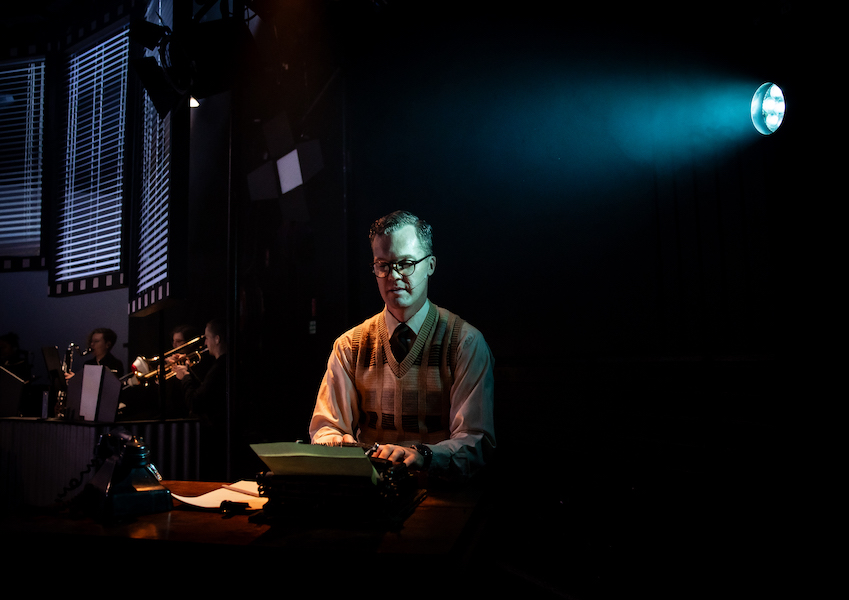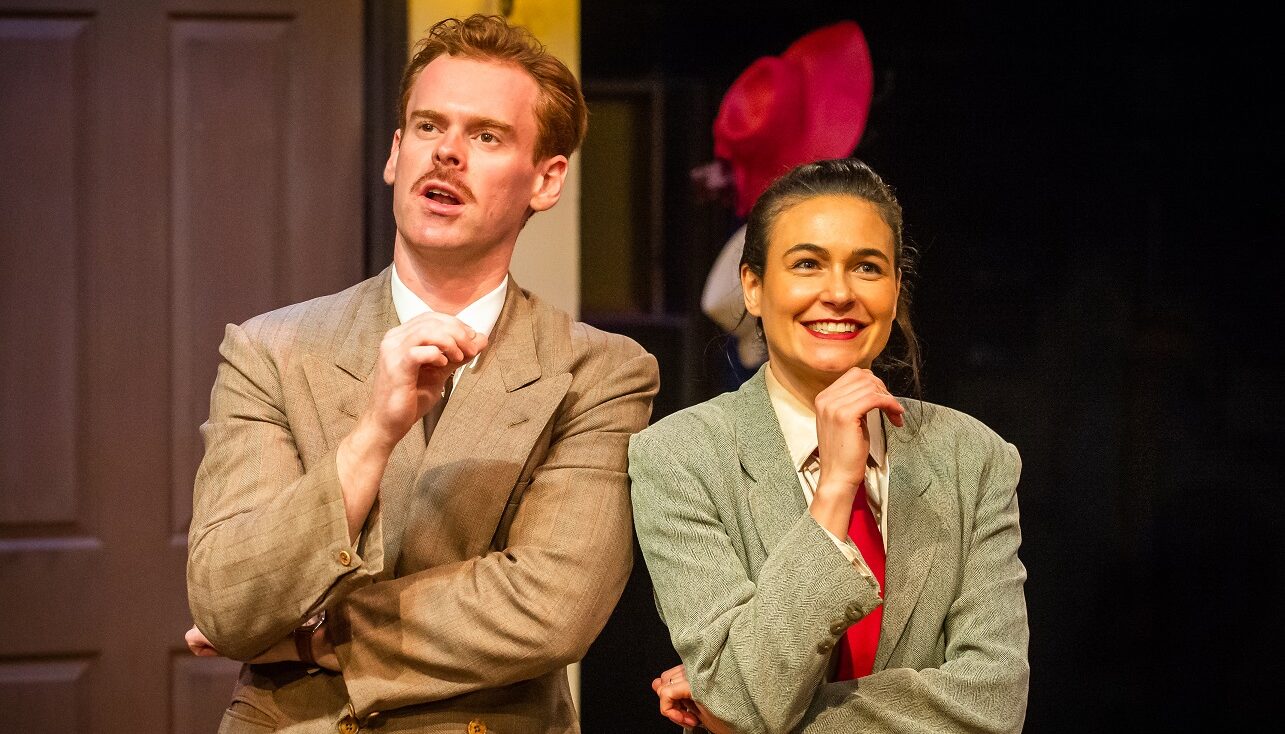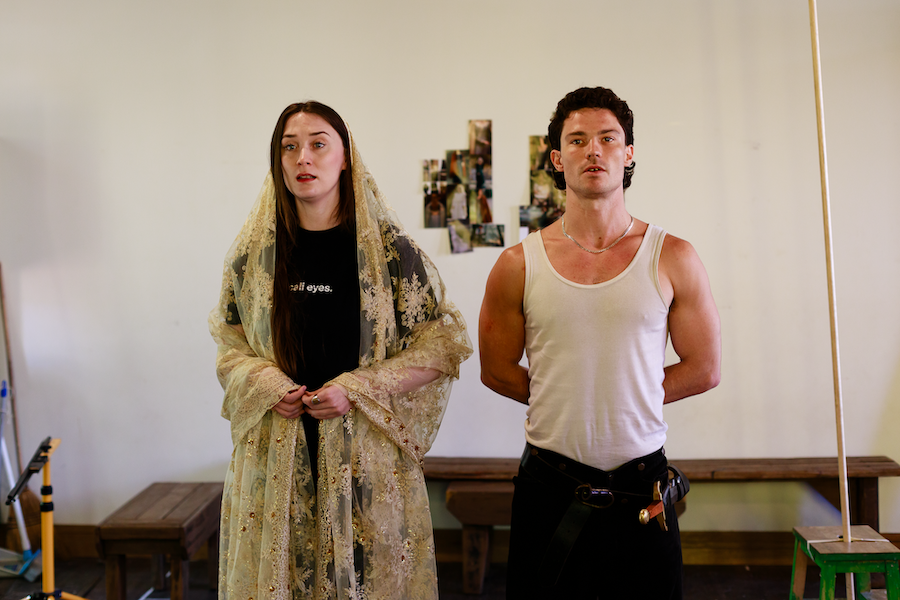
City of Angels – REVIEW

City of Angels is a satirical musical set in Los Angeles (literally, the city of angels) in 1940s Hollywood which is currently in its Sydney premiere season at the Hayes Theatre.
The book parodies the Bogart-styled film noir of the era, as well as pulp detective novels. It was written in 1989 by Larry Gelbart, whose CV includes the phenomenal smash hit series M.A.S.H., the Sondheim musical, A Funny Thing Happened on the Way to the Forum, and the film, Tootsie. Songs are by renowned composer, Cy Coleman (Sweet Charity among many others) and lyricist David Zeppel (Disney’s Mulan and many others).
Stine (Glenn Hill) is a successful writer who has just sold the film rights to his best selling crime novel, City of Angels, little realising he has thrown his creative soul into the bargain.

Retained as the scriptwriter, Stine is forced to make changes and compromises to his original story for the sake of a more commercially appealing film. His director and artistic nemesis, Buddy Fidler (Paul Hanlon) is obsequious yet unflinching in his repeated requests for alterations to the script.
Gabby (Mia Morrissey), Stine’s wife, sees that her husband is unhappy but can’t convince him to drop the project and return to writing novels. She is also aware of his constant infidelity and, having caught him out one more time — with Buddy’s secretary, Donna (Shannen Alyce Quan) — finally decides to leave him.

Meanwhile, in parallel to this unfolding real world drama, Stine’s script is also being played out in front of us as he writes. In the fictional story the hero is a gritty private detective called Stone (Aaron Tsindos). Stone is hired by the wealthy and attractive, Alaura Kingsley (Penny McNamee) to find her errant “bad girl” step-daughter, Mallory (Chantel Cofie).
A distinction is made between the two storylines by having black and white costumes and props in the fictional world and full colour in the real world. However, with both worlds occupying the same confined spaced and most of the actors playing dual roles (a real person and their fictional counter-part in Stine’s script), it begins to get confusing. A convoluted plot doesn’t help.

The songs are a delight, with very clever lyrics and beautiful 1940s styled scatting and harmonies. Having the seven-piece band visible on stage hearkens back to live shows of the era and the ensemble are like a mixed quartet with crooning singer, Jimmy Powers (Ethan Rutledge) hamming up lead vocals.
There are various peripheral characters including a disgruntled police lieutenant, Muñoz, played with vaudevillian flourish by Marcus Rivera.
Thematically, the story focuses on the tension between two artistic visions: Stine’s and Buddy’s. Stine wants his novel faithfully reproduced on screen; Buddy is pragmatic about what film-goers want to see.

It’s instinctive to side with Stine whose artistic integrity is being challenged. But Stine, as well as being a philanderer, is egoistic, petulant, selfish; and his novel is, after all, a popular crime paperback – not exactly high literature.
Stine is difficult to like. He is dismissive of his wife’s accusations and writes her an explanatory (not apologetic) letter about an indiscretion which is such a ridiculous lie it insults her intelligence. He has a particular distasteful scene with his paramour, Donna who, after trying to cover for Stine’s absence by making requested adjustments to his script, is bitterly censured and degraded by him.

Stone is a vamped-up projection of Stine, the righteous, macho hero Stine wants to be. As the narrative progresses, the two worlds begin to bleed into each other and real characters sing and interact with fictional ones.
The supposed “happy ending” feels unearned but also doesn’t seem to clearly resolve anything because, after almost three hours, the plot has become unwieldy.
There’s a lot to enjoy about this show, but overall, it can probably best be regarded as an admirable effort.









